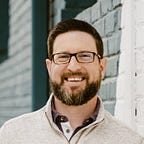To Improve Your Reputation and Profits, Learn to Say “No”
Every “yes” divides your attention. They are the worst kind of trade-off because they’re invisible. There is an implicit (and potentially harmful) cost to every yes.
Contrary to conventional wisdom, “full-service” is not good. It’s a fallacy. When you try to do it all, you fail to be great at anything for anyone.
If you’re giving 110%, it usually means you’re giving 10% to 11 things. You can only say “yes” to so much before you back yourself into a corner.
There is power in saying “No”
“No” encourages focus. It makes your trade-offs explicit. A well-placed “no” signals to your clients and prospects how you are different.
Strategy is “deciding what not to do.” In professional services, this translates to deciding which services not to offer. It means deciding which categories you won’t represent and which prospects you won’t chase.
When you start saying “no” it prevents insidious side-effects that sneak up on your business over time — killing your profits (and morale).
Focus means less overhead
When you know what you offer and how you achieve those results, you also know who you need on your team. By explicitly deciding not to offer a service, you can avoid the overhead of unnecessary talent and the operating expenses that would be consumed by those misaligned services.
The inverse of this is hiring people and taking on expenses for services that don’t compliment your core value. This means you’re subsidizing those implicit “yes” decisions with the revenue generated from your best work.
Hello, mediocrity. Goodbye, profits.
Focus means higher fees
When your clients and prospects know your firm is great at something specific, that translates into credibility. Credibility commands respect, which means people seek you out and will happily pay for your expertise. The benefits you are uniquely positioned to help them achieve.
This means learning how to sell your knowledge, not your time. The name of the game is “equitable” compensation.
Which sounds most fair to you and your client:
- a fee based on the benefit you created (value), or
- a fee based on the time you spent (effort)
Let’s take this a step further. Should you make less than an average firm that takes weeks to produce what you can do in just a few hours?
Effort is irrelevant. Clients buy outcomes, not good intentions or wasted effort from goons that over promise and under deliver.
Focus means more profit
Even without higher fees, focus allows you to get extremely good at creating a small number of business outcomes.
If you’re paying attention and being observant, you’ll discover ways to achieve more with less — or at least, learn how to generate more (high quality) outcomes faster than you need to grow your team and other operating expenses. That know-how is your intellectual property. Guard it well.
I highly recommend baking it into repeatable processes and specialized software that you can leverage internally. Maybe even licensing to clients in the form of productized services for recurring revenue.
Who wouldn’t want to keep generating revenue from their prior effort? This is what Jack Butcher calls “build once, sell twice.”
Focus means less drama
When you learn to confidently say “no”, you teach clients and prospects to expect specific value from your firm.
Will there be some drama initially? Highly likely.
Will it be short-lived? Yep.
Over time this translates into better clients who value what you can do for them. The clients that don’t value your focus will fire themselves and your prospects will engage you after deciding they value your focus.
Casey is the founder of Fullstride, an advisory firm for mid-sized businesses pursuing their first Warehouse Management System (WMS).
